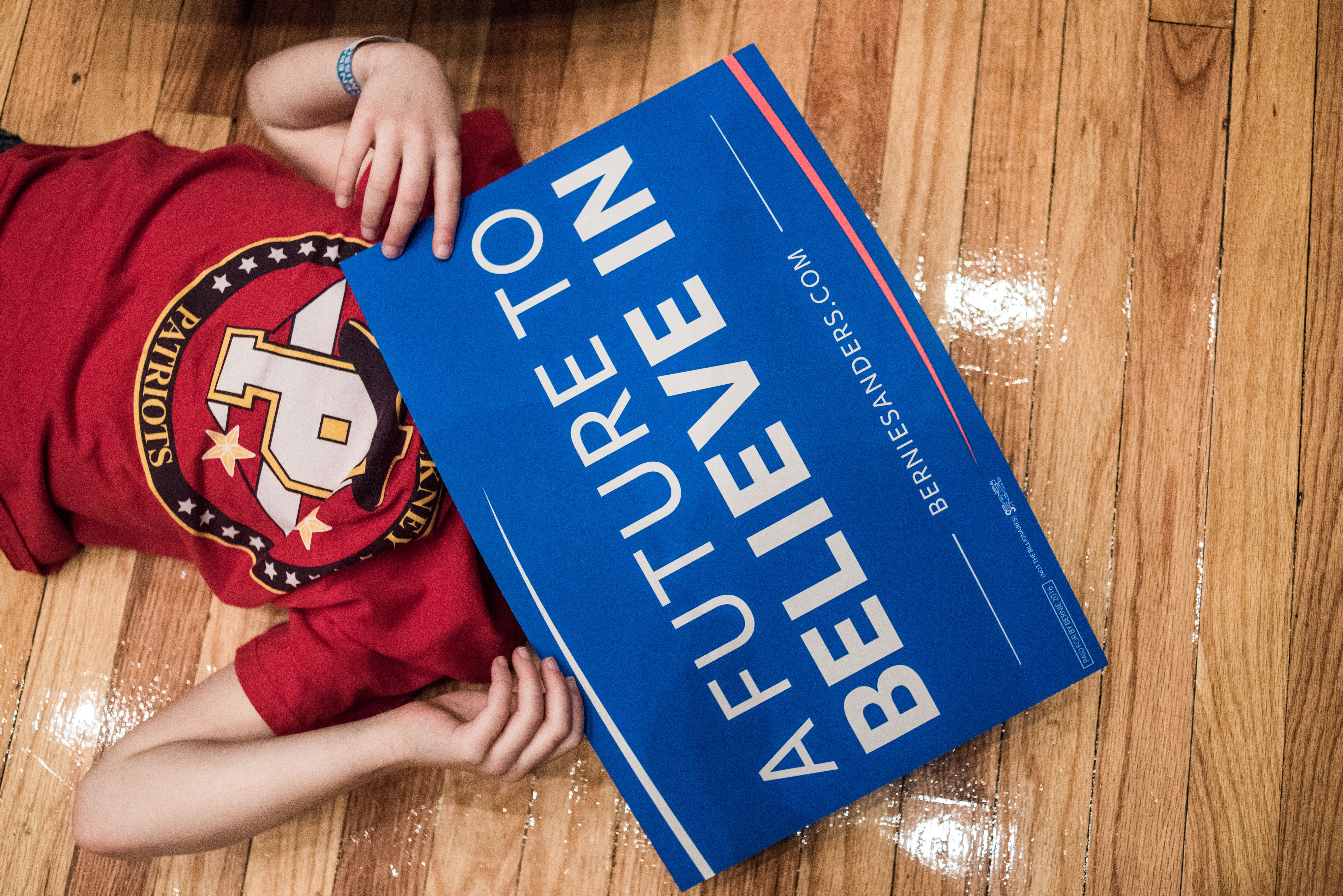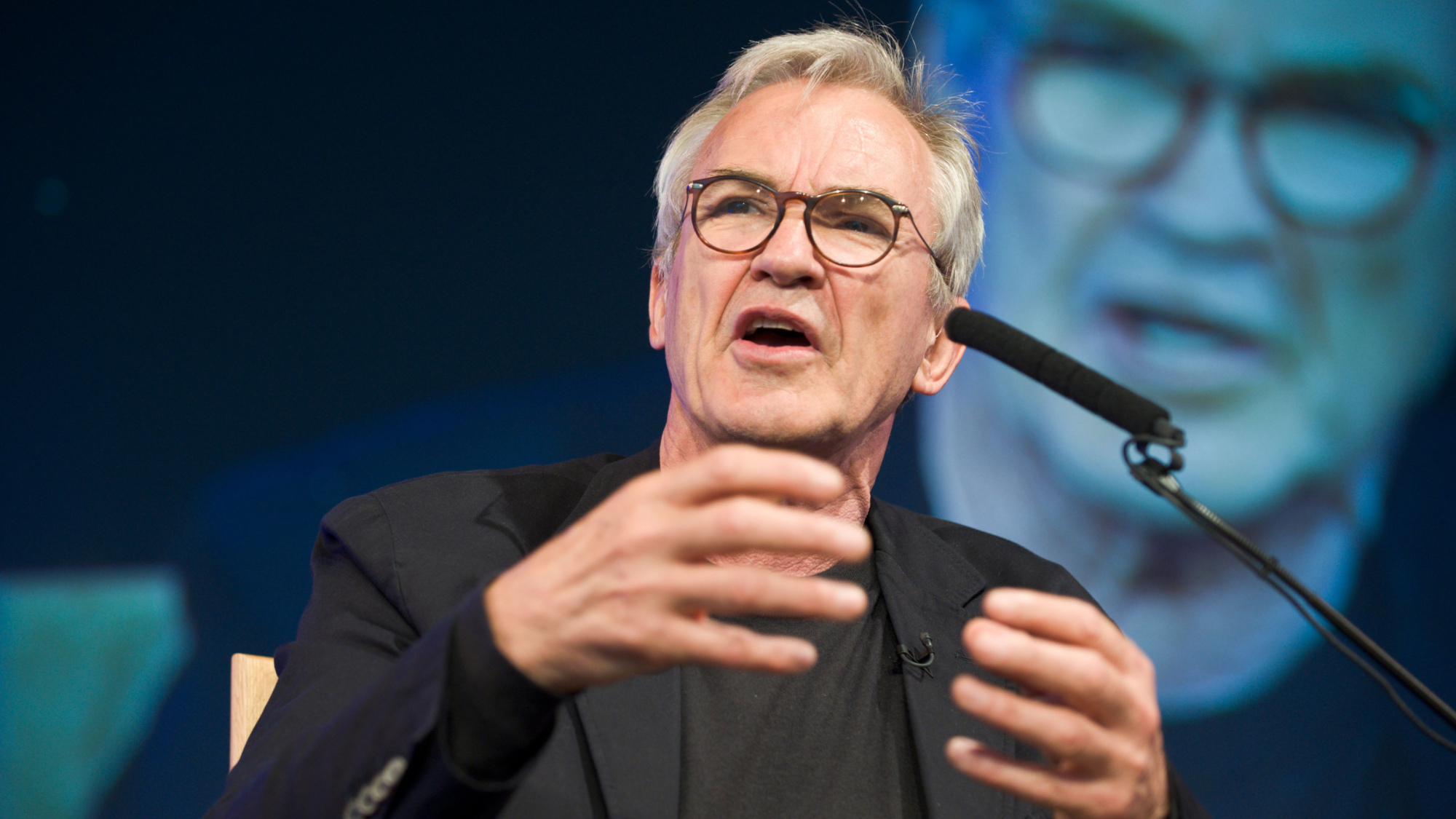A Ron Paul supporter's advice for bummed-out Bernie fans
Step one: Stop complaining about the rules and start learning them


Dear Bernie Sanders supporters,
I've got some advice for you.
I am not one of you, but I've been in your position. You see, I interned on Ron Paul's 2008 campaign, and I've been involved in the "liberty movement" it started ever since. I understand what it's like to be overwhelmed — obsessed, even — with a candidate who represents your views better than you thought anyone on the national stage ever would. I know what it's like to see your guy surging on Reddit and other online forums and yet diligently ignored and undercut by the mainstream media. I remember how exciting it is when the fundraising figures blow past all expectations and you think maybe, just maybe, we have a real shot at this thing.
Subscribe to The Week
Escape your echo chamber. Get the facts behind the news, plus analysis from multiple perspectives.

Sign up for The Week's Free Newsletters
From our morning news briefing to a weekly Good News Newsletter, get the best of The Week delivered directly to your inbox.
From our morning news briefing to a weekly Good News Newsletter, get the best of The Week delivered directly to your inbox.
And I know what it's like when the establishment candidate takes more and more delegates and the prospect of your candidate's victory slowly but surely becomes mathematically impossible.
Of course, in a one-on-one race, Sanders has performed much better in 2016 than Paul ever did in the comically crowded Republican fields of 2008 and 2012. But particularly following the New York primary last week — and with the Democratic Party's superdelegates sticking firmly to their establishment guns — it is increasingly difficult to make the case that Hillary Clinton will not be the nominee.
This is undoubtedly disappointing (including for me, insofar as I don't want Clinton's absurdly aggressive foreign policy anywhere near the White House), but it need not be the end of the line for you. On the contrary, now is the time to begin thinking beyond 2016, to begin building the durable movement you need to turn your passion project into a long-term faction of the Democratic Party.
To be sure, what this will specifically look like for Berners will vary considerably from the experience of us Paulites. Nevertheless, here are three ways to get started.
1. Learn your party's rules. A common theme of frustration among Sanders supporters this cycle has been the Democratic Party's superdelegate system. That's understandable, because it's a distinctly un-democratic system designed to ensure that the party elite can retain control. It's also understandable that it has caught you by surprise, given the interest Sanders has engendered in political independents and neophytes.
But don't let it happen again. If you want a real shot at winning your party's nomination in future cycles, learn its rules inside and out. Figure out how you can fairly manipulate them to your advantage. Now, the party establishment might well change the rules once they realize your plans — like the Republican Party changed its rules to screw over Paul at the 2012 convention — but learn them anyway.
Ted Cruz is winning delegates from Donald Trump at state-level Republican conventions precisely because his campaign knows the GOP's rules. Similar opportunities and loopholes no doubt exist in your party's structure, too.
2. Build organizational infrastructure. When Paul's 2008 campaign ended, his supporters didn't simply disband. Instead, two national activist and advocacy organizations — Campaign for Liberty (C4L) and Young Americans for Liberty (YAL) — were born. (Full disclosure: I have worked at YAL in various capacities since 2009.)
These organizations build and maintain our movement between election cycles, teaching new activists the basics of effective politicking, as well as providing a place for political education, discussion, and community. You'll need something similar if you don't want to start from scratch come 2020.
Because as much as Sanders frames his campaign as a movement, it isn't one — yet. The enthusiasm of 2016 "needs to be cultivated and channeled into something durable," Jamelle Bouie writes at Slate. "The energy of the Sanders campaign will almost certainly fade away," he adds. "But if the voters inspired by Sanders can gather their energy and become a part of the Democratic Party, they can win the influence they need to shift its direction in the long-term. And with their youth, they can play the long game, if they choose to."
3. Identify a younger generation of leaders. Speaking of youth, your guy, like our guy, is really old. At 74 and 80, respectively, Sanders and Paul cannot lead their respective followers forever.
Part of the reason for building your organizational infrastructure is that it will allow you to identify a new generation of politicians you can support. For us, it's people like Reps. Justin Amash (R-Mich.) and Thomas Massie (R-Ky.), as well as up-and-comers like Florida's Rebekah Johansen Bydlak.
While it may be tempting to flock to someone, like Sen. Elizabeth Warren (D-Mass.), who already has a relatively high profile, think younger. Your goal is to back principled, viable candidates as a long-term, movement-building investment.
Needless to say, none of this guarantees you'll win the Democratic nomination in 2020 or even 2024. After all, look at where we Paul supporters are this time around: Most of us consider ourselves candidate-less.
But that's okay. The point is not an immediate win — that expectation is a sure route to further disappointment. The point is to make it clear that you're not going anywhere, and you won't give up until you have a real seat at the table.
A free daily email with the biggest news stories of the day – and the best features from TheWeek.com
Bonnie Kristian was a deputy editor and acting editor-in-chief of TheWeek.com. She is a columnist at Christianity Today and author of Untrustworthy: The Knowledge Crisis Breaking Our Brains, Polluting Our Politics, and Corrupting Christian Community (forthcoming 2022) and A Flexible Faith: Rethinking What It Means to Follow Jesus Today (2018). Her writing has also appeared at Time Magazine, CNN, USA Today, Newsweek, the Los Angeles Times, and The American Conservative, among other outlets.
-
 The anger fueling the Bernie Sanders and Alexandria Ocasio-Cortez barnstorming tour
The anger fueling the Bernie Sanders and Alexandria Ocasio-Cortez barnstorming tourTalking Points The duo is drawing big anti-Trump crowds in red states
-
 The JFK files: the truth at last?
The JFK files: the truth at last?In The Spotlight More than 64,000 previously classified documents relating the 1963 assassination of John F. Kennedy have been released by the Trump administration
-
 'Americans deserve immigration officials who are transparent about what they do and why'
'Americans deserve immigration officials who are transparent about what they do and why'instant opinion 'Opinion, comment and editorials of the day'
-
 'Seriously, not literally': how should the world take Donald Trump?
'Seriously, not literally': how should the world take Donald Trump?Today's big question White House rhetoric and reality look likely to become increasingly blurred
-
 Will Trump's 'madman' strategy pay off?
Will Trump's 'madman' strategy pay off?Today's Big Question Incoming US president likes to seem unpredictable but, this time round, world leaders could be wise to his playbook
-
 Democrats vs. Republicans: who are the billionaires backing?
Democrats vs. Republicans: who are the billionaires backing?The Explainer Younger tech titans join 'boys' club throwing money and support' behind President Trump, while older plutocrats quietly rebuke new administration
-
 US election: where things stand with one week to go
US election: where things stand with one week to goThe Explainer Harris' lead in the polls has been narrowing in Trump's favour, but her campaign remains 'cautiously optimistic'
-
 Is Trump okay?
Is Trump okay?Today's Big Question Former president's mental fitness and alleged cognitive decline firmly back in the spotlight after 'bizarre' town hall event



